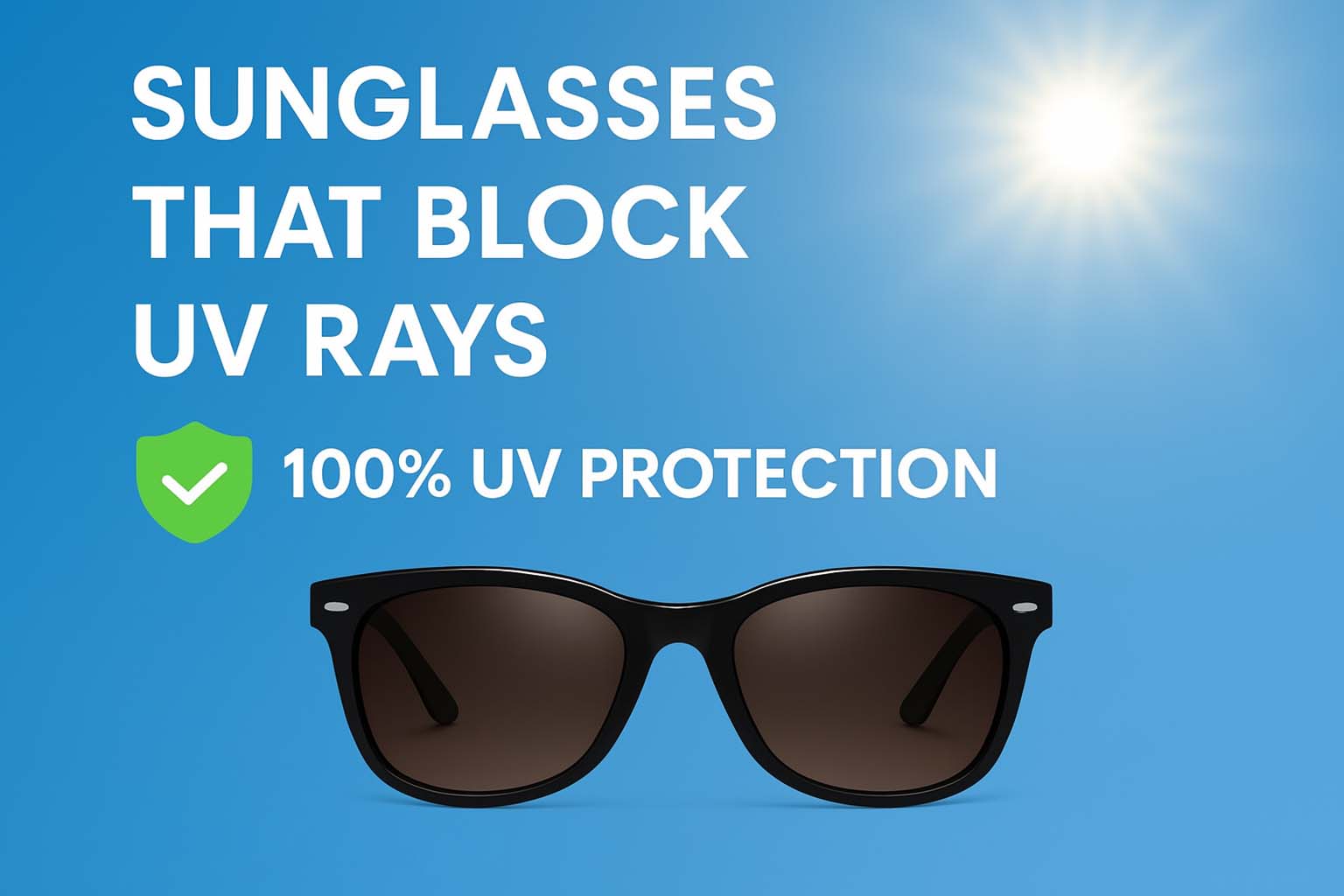
Spoiler alert: They do—if you’re wearing the right ones. But what makes a pair of sunnies actually protective, and what’s just a fashion statement? Let’s explore the eye-opening truth behind UV protection and how to choose shades that do more than just look good.
☀️ First, What Exactly Is UV Radiation?
You’ve heard of it. You’ve probably blamed it for a sunburn or two. But when it comes to your eyes, UV radiation is an invisible threat that can quietly damage your eyes over time..
- UVA Rays: These rays dive deep into the eye and are linked to long-term damage like cataracts and macular degeneration.
- UVB Rays: Shorter but stronger, UVB rays can cause immediate problems—like photokeratitis, a painful “sunburn” on the eye’s surface.
- UVC Rays: Thankfully, these are blocked by the atmosphere. Still, UVA and UVB are enough reason to get serious about protection.
🧐 Quick Check: Did you know your eyes can get sunburned—even on cloudy days?
😎 So What Do Sunglasses Actually Do?
Good sunglasses act like a shield, blocking out harmful UV rays before they can damage your eyes. But not all sunglasses are created equal.
When shopping for sunnies, check for:
- Labels like "100% UV Protection" or "UV 400" — this means the lenses block both UVA and UVB rays.
- Avoid vague terms like “UV absorbing” without clear ratings. It’s like sunscreen without the SPF.
👓 Tip: The darkness of the lens has nothing to do with UV protection. Even very dark glasses can offer zero protection if they’re not treated properly!

👁️🗨️ 3 Hidden Benefits of Wearing Proper Sunglasses
- Prevent Photokeratitis — Also known as “eye sunburn,” it feels like you’ve got sand in your eyes. It can cause redness, tearing, pain, and even temporary vision loss. Sunglasses with full UV protection lower this risk significantly.
- Reduce Cataract Risk — UV exposure plays a big role in cataract formation—a condition that clouds the natural lens of your eye and affects your vision over time.
- Defend Against Macular Degeneration — Your macula is the part of the retina responsible for sharp central vision. UV damage can accelerate AMD, a leading cause of vision loss.
🕵️ What Should You Look for in the Perfect Pair?
- ✅ UV Rating: Look for 100% UVA and UVB protection or UV 400.
- ✅ Lens Quality: Choose distortion-free lenses. Test them by looking at a straight line—if it bends while moving the glasses, quality is poor.
- ✅ Coverage: Wraparound styles or large lenses protect your eyes and the skin around them.
- ✅ Polarization: While not a UV feature, polarized lenses reduce glare—great for driving or water activities.
🛍️ Pro Tip: Buy from trusted retailers. Cheap knockoffs may look the part but lack proper UV filters.
🧠 Final Thought: Are You Really Protecting Your Vision?
Here’s the deal: Wearing the right sunglasses every time you're outside is one of the simplest and smartest things you can do for your long-term eye health.
So, the next time you're heading out for a walk, a beach day, or just a quick coffee run — ask yourself:
Am I protecting my eyes, or just accessorizing?
If you're ready to do both, find shades that work—and work for you. 😎





Mark Smith
Jan 28, 2016 - 10:07 pmLorem ipsum dolor sit amet, consectetur adipisicing elit, sed do eiusmod tempor incididunt ut labore et dolore magna.
replySteve Martin
Jan 28, 2016 - 10:07 pmLorem ipsum dolor sit amet, consectetur adipisicing elit, sed do eiusmod tempor incididunt ut labore et dolore magna.
replyMark Smith
Jan 28, 2016 - 10:30 pmLorem ipsum dolor sit amet, consectetur adipisicing elit, sed do eiusmod tempor incididunt ut labore et dolore magna.
replyMaya Jonson
Jan 28, 2016 - 08:07 pmLorem ipsum dolor sit amet, consectetur adipisicing elit, sed do eiusmod tempor incididunt ut labore et dolore magna.
replySteve Martin
Jan 28, 2016 - 10:30 pmLorem ipsum dolor sit amet, consectetur adipisicing elit, sed do eiusmod tempor incididunt ut labore et dolore magna.
reply